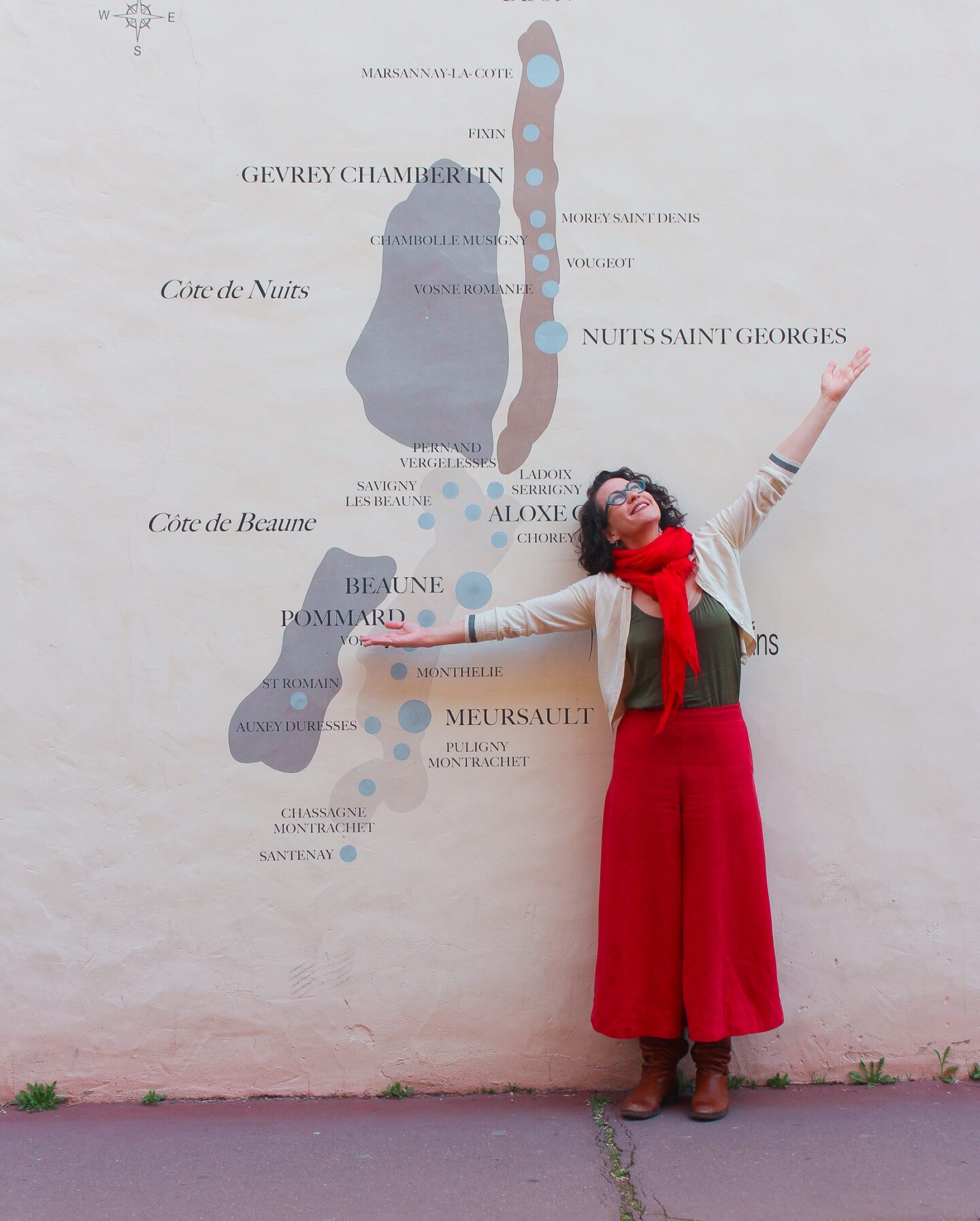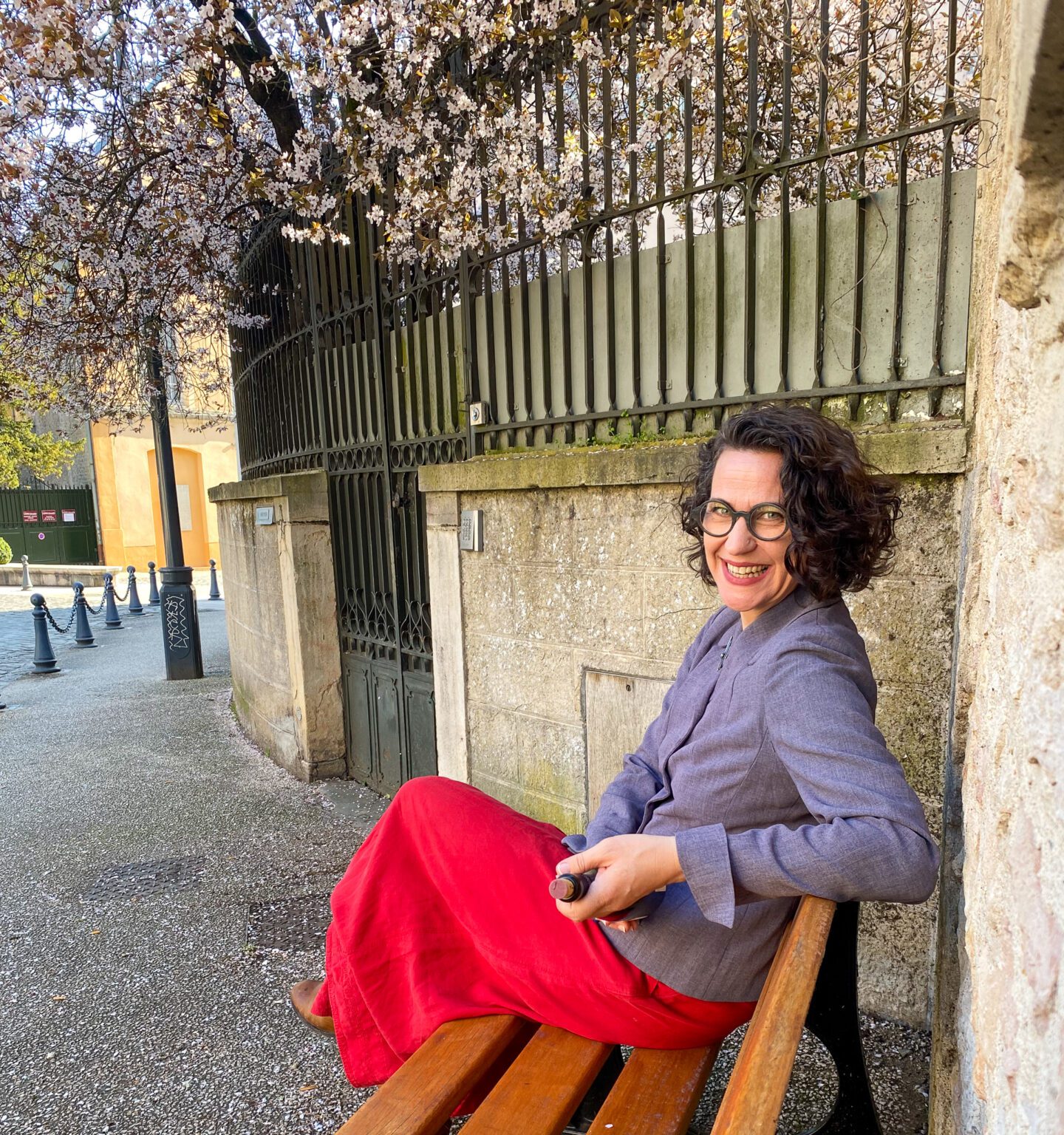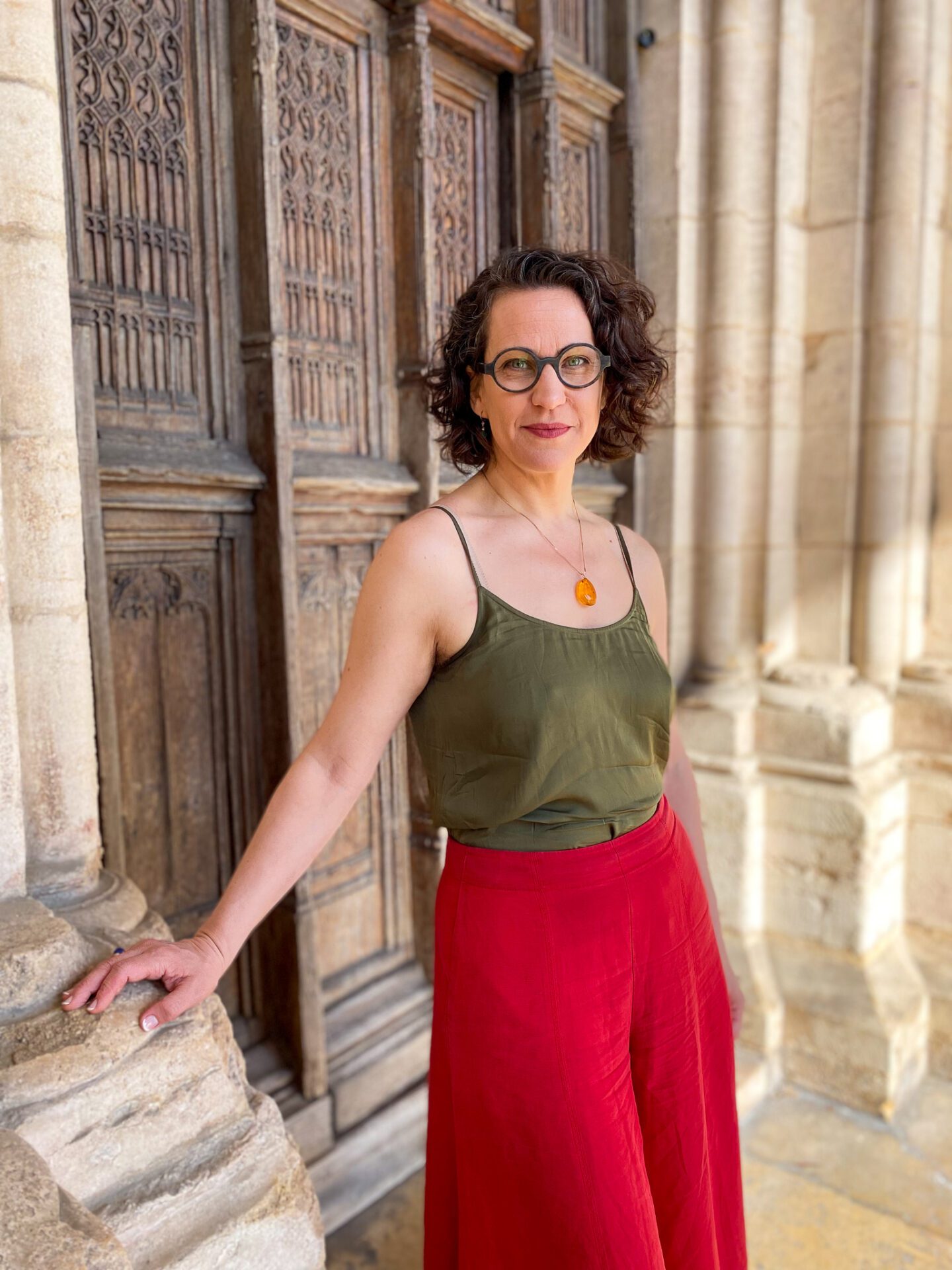
You grew up in Alaska, correct? Can you tell me about how you got interested in wine and what your initial journey was like?
Yes, I grew up as a child in Seattle, and went to Jr High School and High School in Alaska. When I finished High School I went to study language and Art History in France. During this time, I rented a room above a wine bar/ jazz club, where I became intrigued by wine, but more importantly, I was intrigued by the way that wine was integrated into the cultural identity of the people, which I found very beautiful. As a person who grew up in nature, living in such a place marked more by human civilization, I found it comforting that natural products, like food and wine are so deeply wrapped up in cultural identity.
After returning to the United States, I moved to New York City to study Theater and dance. Naturally I found myself working in restaurants to sustain myself both while I was in school and afterwards when I had a small theater company in Williamsburg Brooklyn. The years that I lived in New York, I continued to return to France regularly, and my interest in wine continued to grow. I also traveled extensively in Italy, and Spain.
In my late 20s I decided to close my theater company and devote myself to wine. I enrolled in the WSET programs and took a job working in a small wine shop in the East Village, which specialized in the wines of France, Italy and Spain. My boss was also a wine historian, and a teacher at the Cooper Union, which gave me the idea that through teaching I could integrate my interests for history, culture, and storytelling with my passion for wine…I discovered that I wanted to be a wine educator!
Since returning to Seattle in 2003, I have worked in just about every aspect of the wine business, and have been teaching ever since.


What obstacles or challenges have you encountered being a female working in wine in the US or during your work abroad?
As a young woman being objectified and harassed was an exhausting and ongoing problem. Later as a mother it has been a roller coaster continually trying to find a balance between my personal passions, work and parenting. There have definitely been periods of time when I pulled back from my career, which collectively set me back by about a decade from pursuing my goals. I do not regret that at all, however, now that I am more mature, I feel that I can do both, and feel that there should have been better support for me. It wasn’t until I was teaching in the public college system with my second child that. I realized I could balance motherhood and my career, because there was a high quality subsidized daycare on campus. I credit a lot of where I am today to that daycare. The value of a woman in the workplace, who is also a Mother is not incongruent with productivity, on the contrary, if working mothers are given the flexibility to align our work and family values, then our assets can shine. Mothers are very efficient, and handle adversity and complexity in a very unique way, which is really dynamic. However in order for working Mothers to really succeed, we need to create balance and include all of who we are in our work, not pretending that the Mother part doesn’t exist.
One time I overheard somebody call me unprofessional for declining a project because it didn’t work for my family, it devastated me. Today, I am unafraid to be straight forward with my quest for balance, and will not hide my family values to get work. I know my worth, and if a project refuses to include all of my values, I am willing to let it go. Women have been trained over Millenia to operate in a deficiency mentality, where we fear if we do not say yes to opportunities that are not right for us, there will not be another opportunity. These days I try to live by the idea that my value itself creates my opportunities, not something arbitrary outside myself. Therefore declining opportunities, which are not right for me is less scary, and actually quite empowering.

I’ve also (recently) discovered that men give themselves more permission to be “masters” than women (in my experience) they have been raised to feel there is a seat for them at the table, that they belong, they tend build each other up (in the wine world) and aren’t afraid to negotiate their pay. Centuries of oppression have lead women to compete for scraps and not own our value. In the last few years, I’ve decided to take a play from men’s book in this regard, own my own worth and share prosperity with other women (and men). Whenever I find it difficult to practice what I preach, I remember that my students and my sons are watching me, and I let my desire for them to live fulfilled lives give me courage. It is true both as a parent and as a teacher that we lead by example, not only by words.
I took the French Wine Scholar course at Pacific Northwest Wine Academy from you in the Spring of 2018. You are more of the most accredited educators and certified professionals I know. You have WSET Diploma, French Wine Scholar, Italian Wine Scholar, Spanish Wine Scholar and several master level certifications through the Wine Scholar Guild. Years of study and dedication went into these accomplishments. What are your pro study tips for anyone else on a similar path?
Find out what works for you! So many of us were taught in school that there is one way to learn and memorize information, as the human brain were one size fit’s all, which couldn’t be farther from true! In one moment, literally an ah-ha moment, I realized that I was working in a way, which was wrong for my unique intelligence. I started to ask myself about me, and about the kinds of activities which brought out the best in me, I devised creative ways to learn which were designed with my brain in mind, and I stopped banging my head against doors that wouldn’t open. I tend not to compartmentalize concepts, I don’t use flash cards, and I do use my imagination! By using visualization, working with maps in an integrated way, and by delaying gratification, I am able to fix not only concepts, but facts with a clear path to memory recall.
Here are two of my favorite study techniques:
Guided Imagery: I like to use guided imagery to study. I will close my eyes and live a virtual reality sequence. I start by flying to my destination, if that destination is in France, I might approach all of France from the ocean, travel over topography until I reach the region in question, I think about how that region’s unique topography and overall climate came to be in relationship to the greater topography and geological history of France. Then I will fly closer to the ground, observing the nuance of the topography and landscape of the region I am focusing on. I would then land in a vineyard. Feel the air, is it dry, is it wet…why? Look at the soil, hold it in my hand, feel it, observe the pruning and variety of grape planted…ask my self why? Maybe I will meet the vigneron and ask questions, we might go into the winery, I will observe all of the equipment, the winemaking process…again asking why, and how? Then I will imagine tasting the wine. As I taste the wine, I imagine that I smell it and feel it, and am able to draw conclusions about all of the factors, which brought it into being. These factors invariably encompass most of the questions one might possibly get asked on an exam: the climate, the topography, bodies of water, climate influencers, soil, grape varieties, winemaking, sensory typicity and more!

“Cultivated Yearning”: One of the obstacles I find to learning and retaining information is just how saturated the world is with information, it flows over and through us around the clock, we immediately gratify every question with an answer by looking it up! I celebrate how amazingly easy it is to find answers, but I think this also works against us in terms of retention. So I have come up with a practice I call “cultivated yearning”. I set myself a task, naming the Villages of the Bourgogne North to South for example. I specifically engage in this exercise while doing something like a big sink of dishes or taking a shower. The rule is that no matter if I have a blank spot or not I have to continue the exercise until my task is finished BEFORE I can go look up the missing piece of information. Sometimes I even do this while I am falling asleep, and have to wait until morning to look up the answer/s. By delaying gratification, and by cultivating a frustration and yearning to know the answer, I create a space for that answer in my brain, and am much less likely to forget the information I waited to discover!
These ideas might help you, but don’t do what I do…do what works for you!!! Look to yourself and your strengths when choosing study techniques, just because something works for somebody you admire, does not mean it will work for you!
How do you continue to stay passionate about wine while also building a business in it?
That’s easy! I am driven to share the joy for learning about wine, and feel the greatest reward when I see students get inspired, fall in love with something, and find their belonging with wine!
From a practical perspective, in my business, I am working on creating structures, which will keep me in the creative seat, and keep me doing mostly what I love. Love and joy is what led me to the work that I do in the first place! Right now I am working on foresight and structures when it comes to my business. My motto is “stay in your joy”, which requires strategy and intention sometimes. Fortunately I love my work, and I also love producing, so many of the tasks of building a business fall into the category of interest for me, if not, I find a way to get somebody to help with those tasks, and practice delegation.
You have traveled extensively to many other wine regions throughout the world. How has this shaped your professional path and do you have a favorite region?
Travel is the most influential part of my path. Real experiences, real relationships, real food and real WINE! Ultimately nothing beats the real experience, and I feel that I do not really know a region until I have been there.
My most beloved region is Bourgogne, I am obsessed with the nearly 2,000 year un-broken collaboration between people and nature there, I see it as a cultural art. I am absolutely enchanted with the great magnum opus which is the Climats of Bourgogne (the 1,247 Climat of Bourgogne were named Unisco World Heritage Sites in 2015!). I am really interested the evolution of the relationship with each plot, it’s name, and the wine it produces.
My relationship and exploration to understanding Bourgogne wines has also led me to know more intimately many other regions. It’s like they say: “the love of you mother teaches you how to love”, Bourgogne has taught me how to be in relationship with wine. Being an official Ambassador of Bourgogne wines is the pinnacle of my career. The quest to understand wine, in particular Bourgogne wines is a humbling journey. It is a huge honor to be chosen as an Ambassador, I blush about it all the time.

I am also crazy about central Italy. I have family in Umbria, and am currently working on one of the most rewarding projects of my career in collaboration with the Consorzio of Orvieto. I feel that Orvieto is one of the most magical places in the world, and yet one of the most poorly understood wines. So I went to Orvieto interviewed historians and geologists, met every producer, tasted every Orvieto DOC wine, and have created an Orvieto Master class project, which is rolling out in 17 wine schools across 8 countries this Spring.
I have also started to lead educational wine tours to my favorite wine regions, with the intent to share the access I have acquired through my work with my students. After the last trip to Bourgogne several of my students told me that it was one of the best weeks of their lives! It feels VERY good to be able to open the door to that kind of joy for people, so I will continue to offer one trip about every 9 months. Next up is Umbria and Eastern Tuscany, and then Bourgogne again.
What region have you not visited yet but want to?
Sicily (are you listening Wines of Sicily?). I am also a scholar and teacher of wine History, with a specialty in the ancient world (in the theater my focus was the Greeks). Sicily represents the epicenter of the ancient Mediterranean, and the wines of today are a spectacular integration of new and ancient traditions.
What are you most curious about in wine right now?
Deep exploration and intimacy is what I am seeking at this moment in my life, so I find myself specializing more and more.
I am very interested in seeing the whole story; from culture and tradition, to terroir, so that I can understand the essence of my favorite wines. The why and how of interconnected factors which make a wine uniquely itself.
One of the things I enjoy most about your courses in particular is your inclusion of historical and sometimes anthropological components within the study of wine. I love how you bring these elements into your classroom. Can you describe more about why you feel these are important elements ?
I think that probably this question has already been answered through my previous responses. A wine is not a fixed moment in time, it is an accumulation of geological and human historical events which brought the terroir and the traditions into being, it is the story of that evolution of a wine region’s identity as expressed through the winemaker, then it is the life that wine experiences in cask and bottle, leading up to the pleasure a person takes in drinking it. In order to understand the why and how of a wine, one must understand the events, which lead to it’s being.

Aside from being a wine educator and professional what else would you love to do?
Well, I love to learn and study (surprise). Besides wine: languages, history, and art in particular. I really like travel, people, food and being in nature. All of these things are fortunately part of my work in wine, but I also love to fulfill these interests as they relate to other subjects, and to share those experiences with my family. I have a little vegetable garden too and love to grow the food that I eat.
You are my go to person for all things related to wine and education in the Pacific Northwest. How can readers contact you to register for your courses and programs?
People can find information about all the classes I teach, trips, scholarships, and events on my website: www.cellarmuse.com
I am always happy to hear from people directly with questions, and can be reached at tanya@cellarmuse.com
Do you have any plans to create your own online courses soon so English speakers living outside of Seattle (like me) have an opportunity to study under you?
I have created some online wine learning courses at the college level, and teach hybrid classes at the Northwest Wine Academy at South Seattle College, so I have gained some of the pedagogy to bring online courses into being. I would say, yes you could expect that on the horizon, maybe in 2021 under my own brand.
Anything else you want to mention?
I am in the process of opening an independent wine school in Seattle. The school will house: Wine Scholar certification courses (French, Italian, and Spanish), Wine and Spirit Education Trust programs, Master Classes, workshops, and other educational events. I am also working on a small, highly curated wine retail element, along with selling rare wine books, maps and wine art prints from the golden age of advertising.
Keep your eye out for the Seattle Wine Institute, hopefully opening this Spring!
Meanwhile take advantage of Tanya’s online learning program now.
https://www.cellarmuse.com/bookings-checkout/drink-like-a-roman-live-webinar-series